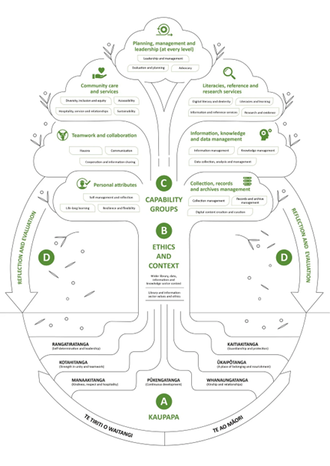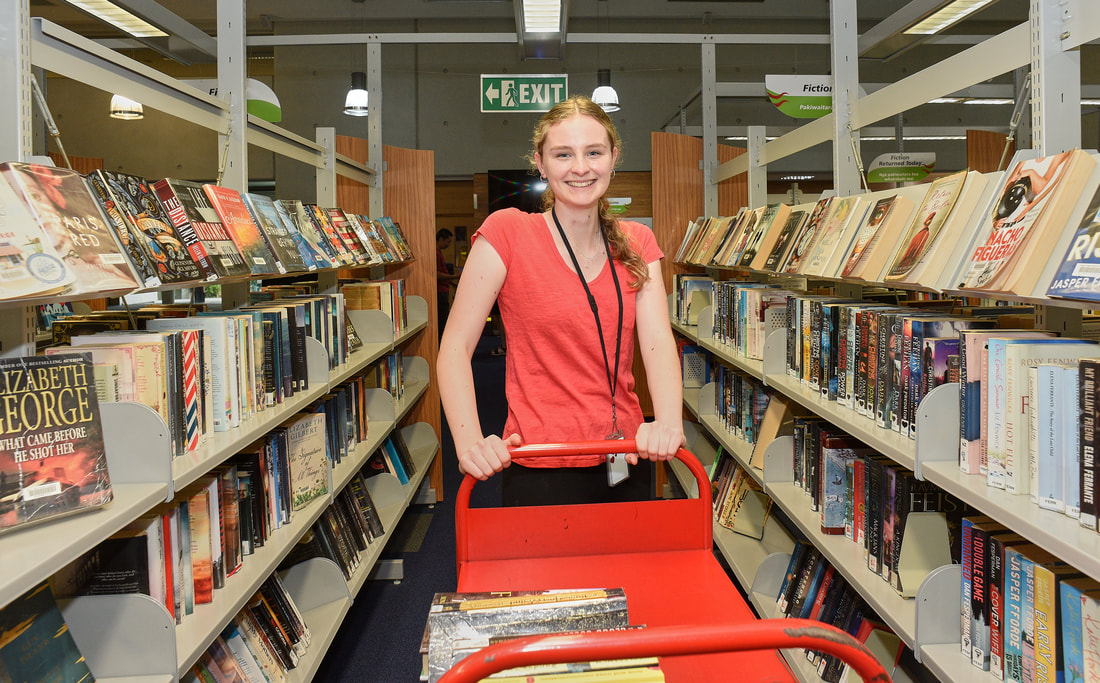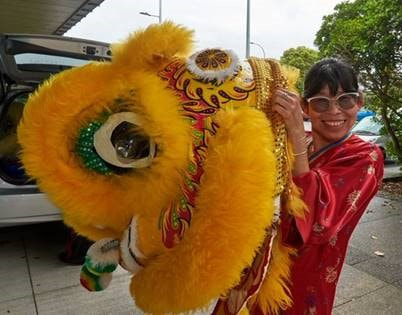Kāpiti Coast District Libraries is piloting how the framework might be used by their team and in the wider context of public libraries. Te Roa Ora Library Life editor, Angie Cairncross, talked to Ian Littleworth Libraries & Cultural Services Manager about the framework and what it means for the sector.

“The role of libraries is evolving so much and will continue to change. This was an opportunity for us to prepare and think ahead and position ourselves and our staff for what may be coming.
“It was great to take a sector wide approach to capability building but in hindsight, it’s a beast of a thing. The huge benefit is that you now have it all in one framework, which works for all areas of our diverse library and information sector. It provides the ability to go in and take slices from the framework to fit your organisational needs which then can be worked through over time.”
The other important thing says Ian, is that the framework is based on capability building. This elevates the conversation he says, where the focus is on defining the capabilities needed in a future focused and evolving library offering.
COMPETENCY VS CAPABILITY
A competency is the skill, knowledge, talent and attitude needed to fulfil a task, job requirement and expectations. A competent employee can do anything their job requires and do it well.
A capability goes beyond a competency. A person’s capability is a measure of their potential and includes all the attributes that show how fit they are to do their job, now and in the future. Capabilities include a person’s set of competencies, their ability to develop and apply other skills, their experience, professional networks, confidence in doing a good job and any other job-related soft skills, attitudes and beliefs.
“The beauty of the framework is you can slice and dice it as you want. The pilot we were doing was how do you take the Te Tōtara framework at 70 or 80 pages, that was developed for the whole sector, includes an extensive workbook, and make it fit for a medium-sized library like Kāpiti? We trialed the workbook and it is a great tool, but too much for our staff. So, we will use it as a resource for managers and have now developed a trimmed-down version – a four-page worksheet – for staff.”
The worksheet looks at the capabilities identified from Te Tōtara and staff mark themselves where they think they fit, they may identify strengths in a particular area, or may need to grow in another. It’s the start of our performance development planning, Ian says.
“We’ve set personal and team goals around the seven principles that form the roots of our totara tree and support our team’s growth and development. Earlier this year we appointed Watene Kaihau into a new role as our Te Kaitohutohu Ratonga Māori (Whare Pukapuka) / Māori Services Advisor (Libraries).” He will be supporting the team in growing their understanding of Te Tiriti o Waitangi, Te Ao Māori and in kaupapa Māori development which are the roots that the Totara tree – the framework – is based.
They are doing work around all those seven principles as a team as it underpins everything we do. The seven principles are:
- Rangatiratanga (self-determination and leadership)
- Kotahitanga (strength in unity and teamwork)
- Manaakitanga (kindness, respect and hospitality)
- Pūkengatanga (continuous development)
- Whanaungatanga (kinship and relationships)
- Ūkaipōtanga (place of belonging and nourishment)
- Kaitiakitanga (guardianship and protection)
“We will be working on articulating what these mean for us as a library, as a team, and for staff individually.
“It’s an evolution, people can’t work on everything at once, but they can focus on one area before moving to another.”
The Kāpiti team has included the Kāpiti District Council vision and objectives in their tree trunk, Te Tīwai section that represents the values, ethics, and wider context for the sector. The team discussed including the UN Sustainable Development Goals and local government community well-beings in this section, but their first step was to make sure that staff understand the core Kāpiti Council and library objectives before including other areas.
“What do I like about this framework? It is a massive resource intended to be used by the whole sector, so everything that you will need is there. But it will be used differently depending on what part of the sector you are, what the requirements are for your library, and where you want to evolve to in the future? For us, there are also parts in there that we aren’t covering yet, such as AI, but these give us areas to aspire to in the future.”
It’s also about growth – there are steps in there to cover the cycle of learning. They go from the foundational kōrero- discussion level to mōhio-knowledge (comfortable level), mārama-understanding and the level of mātau-wisdom which is the capable level.
It’s an amazing tool but there’s a whole lot of work to do in how we sell it to staff.”
Ian says that his team has responded well to the framework. Through a number of workshops and staff sessions they have talked about the principles and what they meant to them, and what to include in Te Tīwai.
The capabilities – the branches of the tree – are part of the performance development and Te Tōtara is used as the basis for this process which has moved discussions to be about performance growth.
“In our annual performance development process, we have used Te Tōtara as the basis for our goal setting with one performance goal around a capability, one based on a Te Tōtara principle, one on health and safety, one on a wellbeing goal, and one on a learning and development goal.”
The process has taken nine months of workshops and discussions as the team decided what each part meant to them, for instance, manaakitanga in their library and work. It’s been an important process for engaging the whole team in what they are doing.
Kāpiti Coast District Libraries have chosen to use Te Tōtara in this way because it works with where they are as a library and where they want to head in the future. Other libraries may choose to use the capability framework in a completely different way and that is the enduring benefit of this amazing resource.




 RSS Feed
RSS Feed